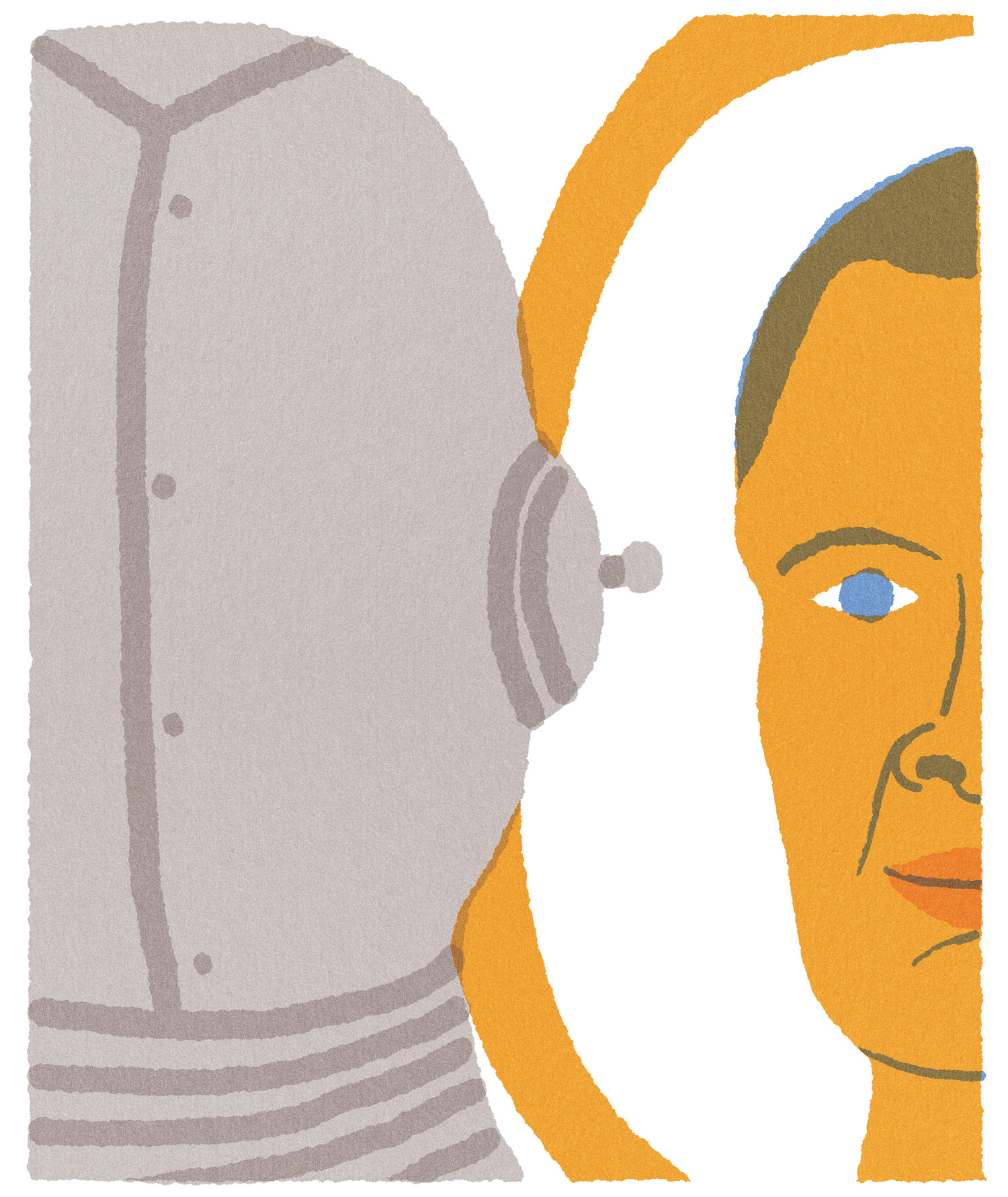The ideal employee of the future is measured in learning rather than billable hours, says Maria Ritola, Co-founder of research assistant Iris.ai. While tech drives the ways we work at an ever-growing pace, human intelligence is crystallised around empathy, an ability to interact with peers and draw conclusions on machine-generated information — a human privilege.
Maria Ritola worries about deniers. That is, those who ignore technology merely out of fear or uncertainty, thinking that either nothing is going to change or that sooner or later, singularity will take us over. As the Chief commercial officer of Iris.ai, an artificial intelligence science assistant, Ritola sees technology as something that fulfills us rather than renders us obsolete — especially at work.
Founded in 2015 by Ritola and three partners, Iris.ai removes tedious and time-consuming steps from research projects by semi-automating the literature review part of the process. Once a user has entered a research question, keyword or topic, Iris presents a visual map of related materials across different scientific fields.
In the time it takes you or me to conduct a couple of searches with keyword-based engines and skim through results, Iris.ai curates a tailored reading list based on the millions of research papers it has gone through during its existence. The way Iris.ai operates sums up the ongoing transformation of work.
“While technology increasingly takes care of manual labor, humans have the opportunity to spend their resources on more cognitively challenging or fulfilling tasks,” Ritola says.
However, having kept close track of the public conversation around artificial intelligence, Ritola wants to set one thing straight. There’s a big difference between what is being done with AI at the moment and what can be done with it once it reaches its full potential. Currently, machine learning based solutions are built on recent advances in neural networks. They are good at one task at a time; chatbots, visual recognition, and translation, she says. For now, actual intelligence remains a human privilege — or, in other words, machines are not as flexible as humans who, more and more often need to draw sound conclusions from machine-generated outputs.

“We shouldn’t compete against machines”
We now live in a world where social media managers and app developers bloom in work-spaces that resemble coffee houses. Taking a long lunch break to mull over ideas no longer provokes side-eye from your boss — if you even have one. Organizations are increasingly flat, and the glory days of rigid nine-to-five office hours are just sepiatoned memories that faintly smell of printer ink.
As the nature of work changes, workers and what’s expected of them change, too. We shouldn’t compete against artificial intelligence or machines, but concentrate on the areas where we can contribute the most as humans, Ritola says.
“The focus should be on learning because that’s the main gateway to results. The crucial question is, how do we feed curiosity and a persevering interest in solving problems?”
For a long time, the most valued contribution at work has been efficiency for efficiency’s sake. Employers have celebrated those who arrive at the office early, leave late, and robotically tick boxes in never-ending task lists. Today, a great employee is measured rather in the ability to learn and to process learnings than in metrics and billable hours.
“An ideal employee could be someone who listens well, inspires and takes others into account, provokes conversation and makes unexpected connections between topics, fields, and ideas,” Ritola muses.
Connecting the weirdest dots
Maria Ritola gets a bunch of kicks from her team at Iris.ai. She describes the different fields her colleagues represent (physics, astrology, law), what they do together to blow off steam (play StarCraft, the strategy video game), and how they’ve managed to find a common language among an international team (by respecting the different expertise each team member brings to the table).
“When you combine experiences, skills or ideas that have nothing in common on the surface, you discover something completely new,“ she says. It’s these connections that break barriers.
“People love categories, but categories form silos. Brains get stuck in silos. AI tools such as Iris can help bring walls down by showing us spaces and holes between different and old categories.”
Companies and employers can play a crucial part in this by providing opportunities to be curious and set high standards for learning. We have to learn how to learn, Ritola emphasizes.
Often you learn the most from the unexpected. The first time Ritola realized an odd combination of interests can be an advantage was when she was a teenager trying to decide between hobbies. To the chagrin of her violin teacher — worried as she was for the safety of her pupil’s fingers — Ritola wanted to be a basketball-playing violinist. In the end, basketball made her a better musician with faster fingers and stronger hands.
“Young people should be encouraged to find their identities and through that their interests. Once you feed that, it leads to people doing what they do because of passion. And that’s where I hope we’ll eventually be.”
The makeup of the ideal employee of tomorrow
• Good listening skills
• Empathy
• Capacity to provoke conversation
• Flexibility and adaptability
• Ability to make unexpected connections between topics, fields, ideas
Words: Kristiina Markkanen Illustration: Lorenzo Gritti
Published 06.06.2019
